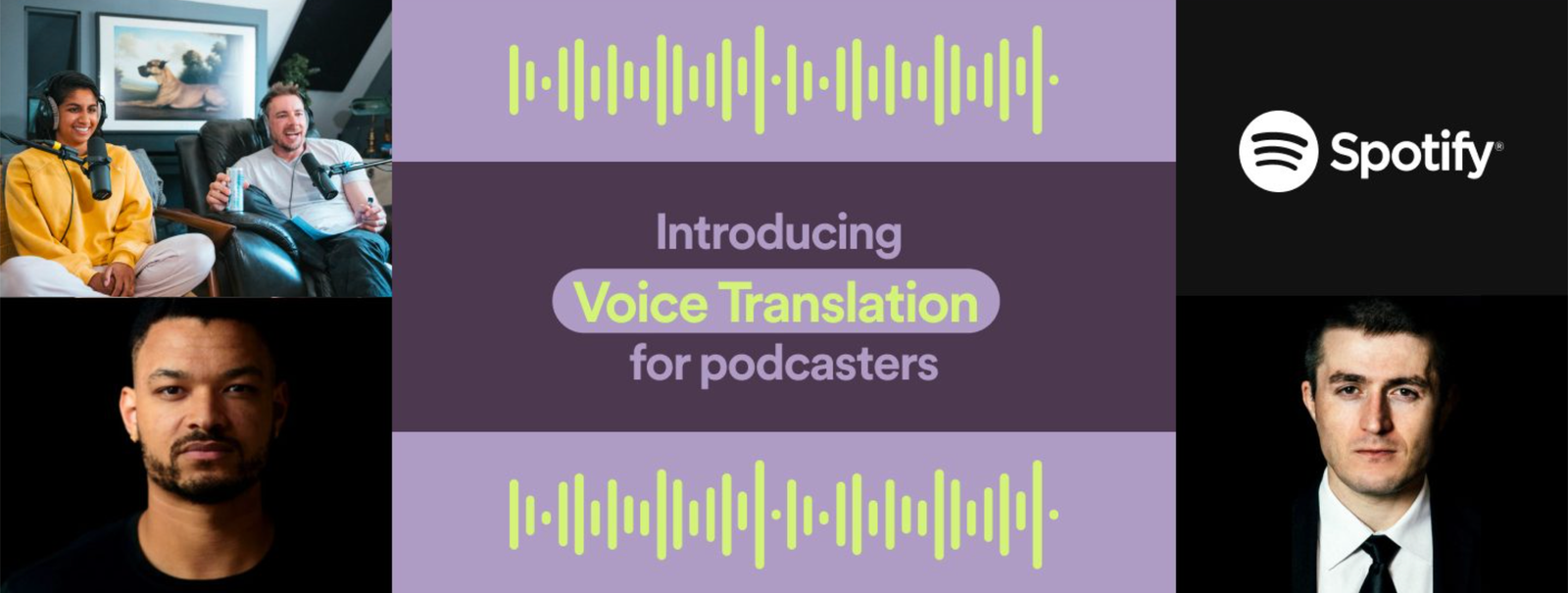Introduction:
Spotify, a leading player in the streaming industry, has unveiled an innovative AI-powered translation tool, named Voice Translation for Podcasts. This groundbreaking initiative aims to break language barriers and extend podcasters’ reach to diverse global audiences. Leveraging OpenAI’s voice generation technology, this tool ensures not only accurate translations but also preserves the unique voice characteristics of the original podcaster.
 Voice Translation Pilot Program:
Voice Translation Pilot Program:
The recently announced pilot program features renowned podcasters such as Dax Shepard, Monica Padman, Lex Fridman, Bill Simmons, and Steven Bartlett. Selected episodes from their podcasts will be translated into Spanish, French, and German, enhancing accessibility for audiences around the world. Furthermore, Spotify has ambitious plans to expand this translation feature to include popular shows like Dax Shepard’s “eff won with DRS,” “The Rewatchables” from The Ringer, and an upcoming original podcast by Trevor Noah.
The Power of Voice Matching:
One distinctive aspect of Spotify’s translation tool is its ability to match the creator’s voice, providing listeners with an authentic experience. Ziad Sultan, Spotify’s Vice President of Personalization, emphasizes the tool’s potential to deepen connections between listeners and creators, aligning with Spotify’s mission to unlock human creativity through thoughtful AI approaches.
Benefits for Podcasters and Spotify:
Industry experts foresee significant benefits for both podcasters and Spotify. Greg Sterling, co-founder of Near Media, notes that this initiative can expand audience reach, opening doors to new markets. Rowan Curran, an analyst with Forrester Research, emphasizes the democratization of language AI capabilities, making advanced functionalities accessible to a broader audience.
Revenue Boost and Market Expansion:
Experts such as Rob Enderle highlight the potential financial gains for podcasters, as increased listenership translates into higher revenues. The translation tool could also be a strategic move for Spotify to tap into untapped markets, potentially increasing subscription sales in countries where English podcasts may face language barriers.
Challenges and Ethical Considerations:
While the translation tool holds immense promise, concerns about its underlying technology arise. Greg Sterling raises issues of potential exploitation and unauthorized use, emphasizing the need for ethical guidelines. Ashu Dubey, CEO of Gleen, acknowledges the tool’s potential challenges, including the risk of hallucinations if a phrase lacks a direct translation. Legal implications are also highlighted by Alyssa J Devine, CEO of Purple Fox Legal, cautioning podcasters about the consequences of inaccurate translations, such as defamation or FTC violations.
 Execution is Key:
Execution is Key:

Conclusion:
Spotify’s Voice Translation for Podcasts represents a groundbreaking leap towards globalizing podcast content. While it holds immense potential for market expansion and revenue generation, careful execution and adherence to ethical guidelines are crucial to overcoming challenges and ensuring a positive impact on the podcasting landscape. As the first major creator platform to venture into this space, Spotify’s initiative sets the stage for the future of language AI in content creation.
Read more: